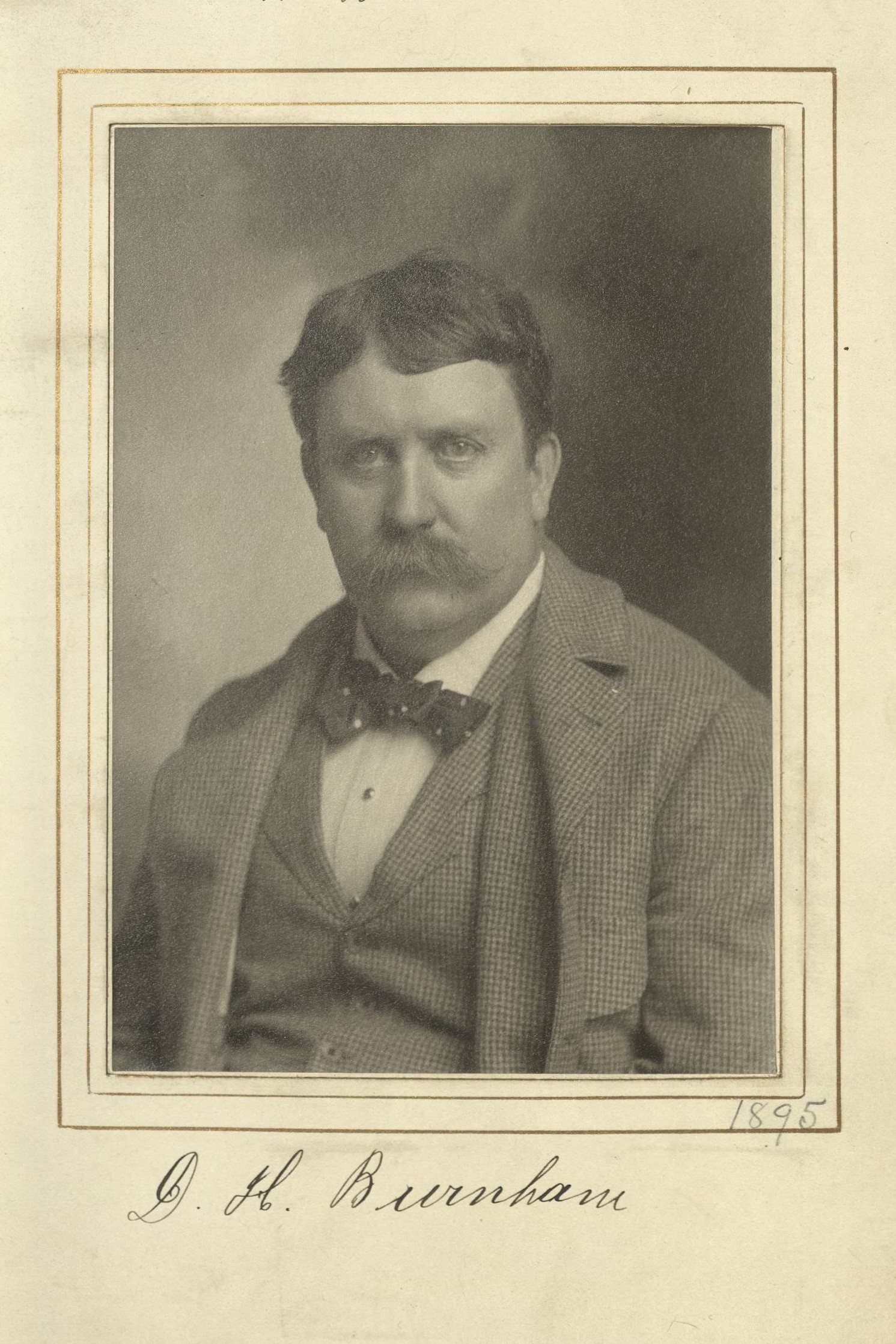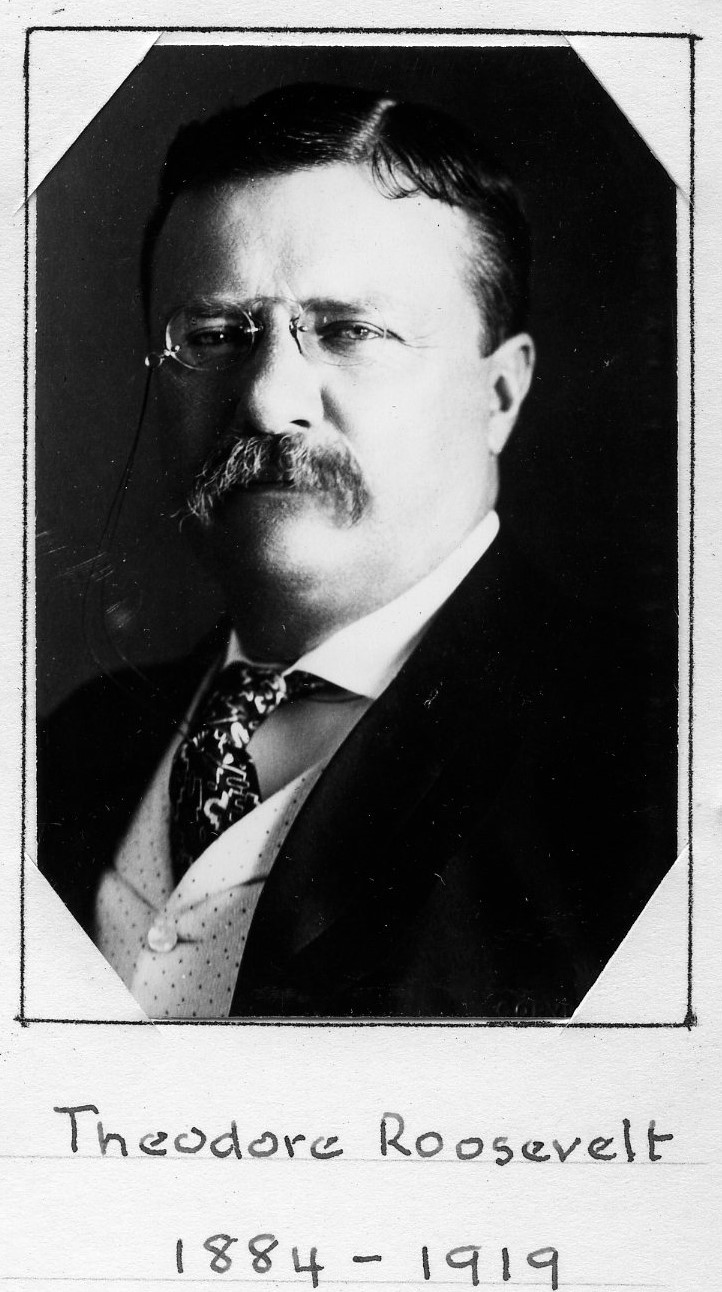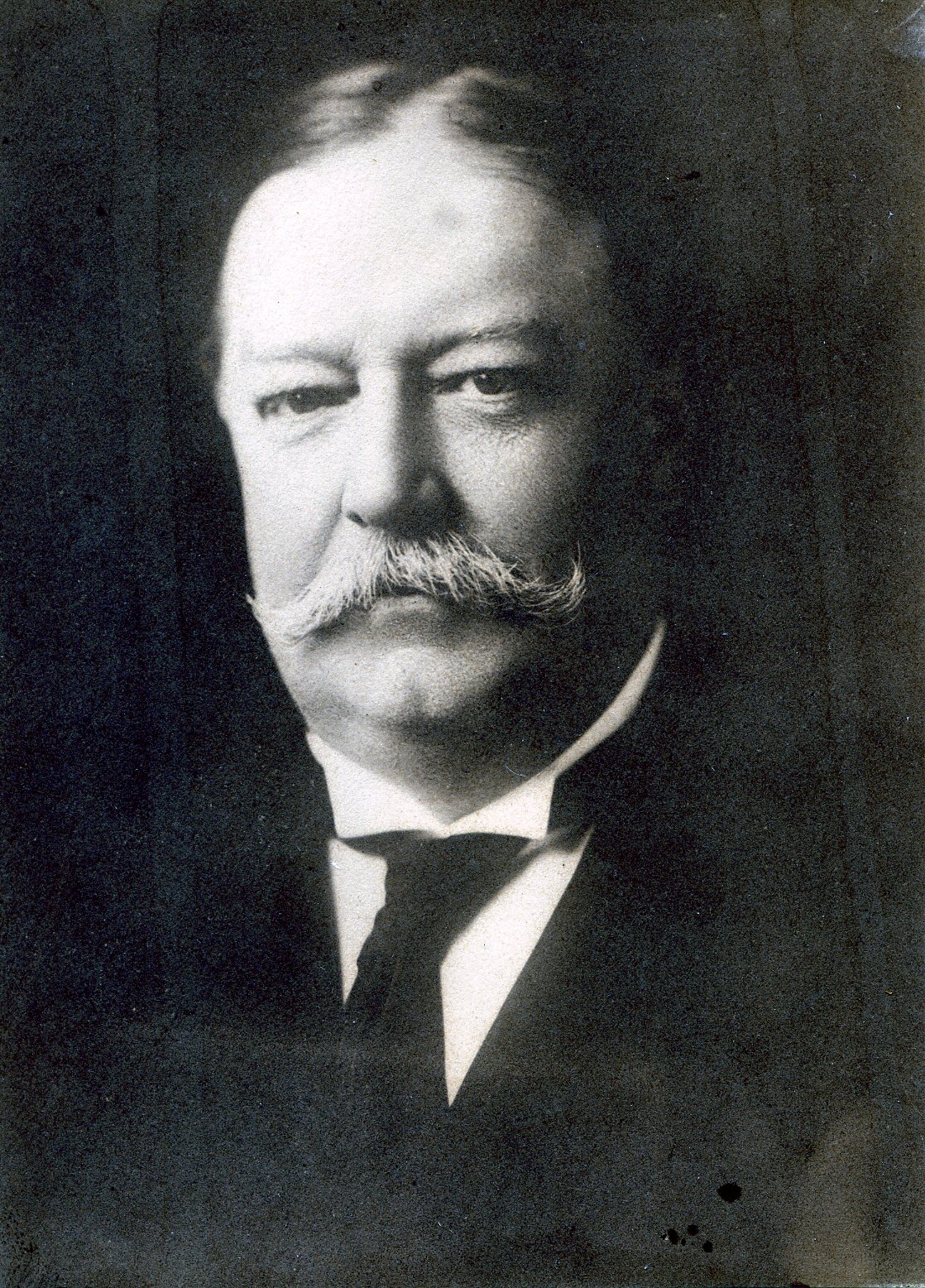Member Directory,
1847 - 1922
Charles Moore
Author
Centurion, 1907–1942
Charles Follen McKim and Edwin Wilson Morse
Ypsilanti, Michigan
Gig Harbor, Washington
Age fifty-two

Century Memorial
Charles Moore was born in Michigan on October 20th, 1855, and was nearing the age of 87 years when he died at his son’s home at Gig Harbor, in the State of Washington, on September 25th, 1942. He took his first plunge into professional life as a journalist. Attached to the Detroit Free Press he presently was established in Washington as the correspondent of that paper and in due course enlarged his functions. He became political secretary to Senator [James] McMillan of Michigan and subsequently was appointed Clerk of the Senate Committee on the District of Columbia. This constituted a landmark of peculiar significance in his long career. It identified him with more than one signal improvement in the National Capital and especially with the Senate Park Commission and the revival of the L’Enfant Plan of 1792. When the Commission of Fine Arts was established in 1910 he inevitably was chosen to be a member, in 1915 becoming its Chairman. As such he served the Commission, and the country, for twenty-two years. An exhaustive minute of that body describes him as throughout that period “the guiding spirit” of the Commission.
He achieved this status through a kind of spiritual dedication to the defense of the monumental integrity of the City of Washington and furthermore through his possession of remarkable administrative gifts. A charming story that is told of him in childhood foreshadows his devotion. At his home in Michigan a visitor from Virginia placed him on his knee, asked him how old he was, and then said: “When I was your age I sat on George Washington’s knee.” Moore cherished this episode in his memory, as forging in some sort a link between him and the city which he was destined to share in beautifying.
He was a Harvard man and under the ministrations of Charles Eliot Norton his interest in the arts was early awakened. He observed the utmost respect for the opinions of the artists on the Commission and they in turn respected his good judgment, his tact in dealing with Congress, Cabinet officials and other persons of influence, and his colleagues knew that he himself had influence and would carry out the ideas of the Commission. To him as to them is to be ascribed the comparatively rapid transformation of Washington. He substantially helped to make the city what it is today.
Moore was an uncommonly active man. In addition to his work as Chairman of the Commission of Fine Arts he served as Consultant to the Library of Congress and as Acting Chief of the Division of Manuscripts. It was largely through his efforts that the Library secured custody of the letters and papers of Theodore Roosevelt and William Howard Taft. He was always occupying himself, too, as a writer. His first recorded publication in book form is “The Northwest Under Three Flags.” The next is a “History of Michigan.” He produced also distinguished biographies of two of his closest architectural friends, Daniel H. Burnham and Charles F. McKim. He wrote divers other books and a great number of model reports. Whatever he wrote was marked by authoritative knowledge and by the charm of his personality.
He will be appreciatively remembered as a man no less than as a constructive executive and as a specially enlightened solver of large public problems having an artistic nature. The world recompensed him in unstinted measure. A few of his honors may be cited in this place. France made him a Chevalier of the Legion of Honor. He was made an incorporator and Life Member of the American Academy in Rome. Numerous medals were conferred upon him. George Washington University twice gave him honorary degrees, Miami University honored him with an LL.D. in 1930 and Harvard made him a Doctor of Arts in 1937. Troops of friends rejoiced in these and many other signs of the wide recognition of his character and work. They rejoice likewise in their memories of his generosity, his humor, his richly companionable traits. There was no compensation of a financial kind for his years of service on the Commission of Fine Arts. But he found a happy reward in the affection and admiration he inspired.
Geoffrey Parsons
1942 Century Memorials
Related Members
Member Directory Home-
 Daniel H. BurnhamArchitectCenturion, 1895–1912
Daniel H. BurnhamArchitectCenturion, 1895–1912 -
 Charles Follen McKimArchitectCenturion, 1882–1909
Charles Follen McKimArchitectCenturion, 1882–1909 -
 Edwin Wilson MorseEditorCenturion, 1902–1924
Edwin Wilson MorseEditorCenturion, 1902–1924 -
 John Russell PopeArchitectCenturion, 1920–1937
John Russell PopeArchitectCenturion, 1920–1937 -
 Theodore RooseveltLawyer/Governor of New York/U.S. PresidentCenturion, 1884–1919
Theodore RooseveltLawyer/Governor of New York/U.S. PresidentCenturion, 1884–1919 -
 William Howard TaftProfessor, Yale University/U.S. President/Chief Justice of the United StatesCenturion, 1913–1930
William Howard TaftProfessor, Yale University/U.S. President/Chief Justice of the United StatesCenturion, 1913–1930



